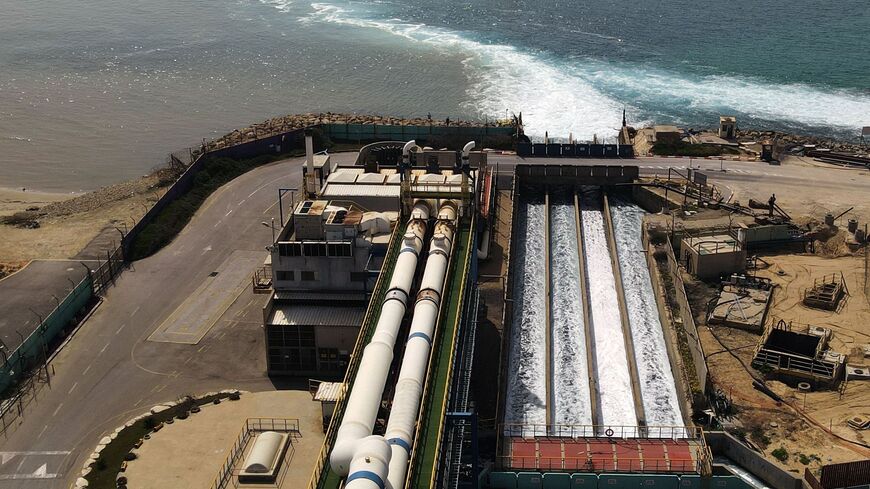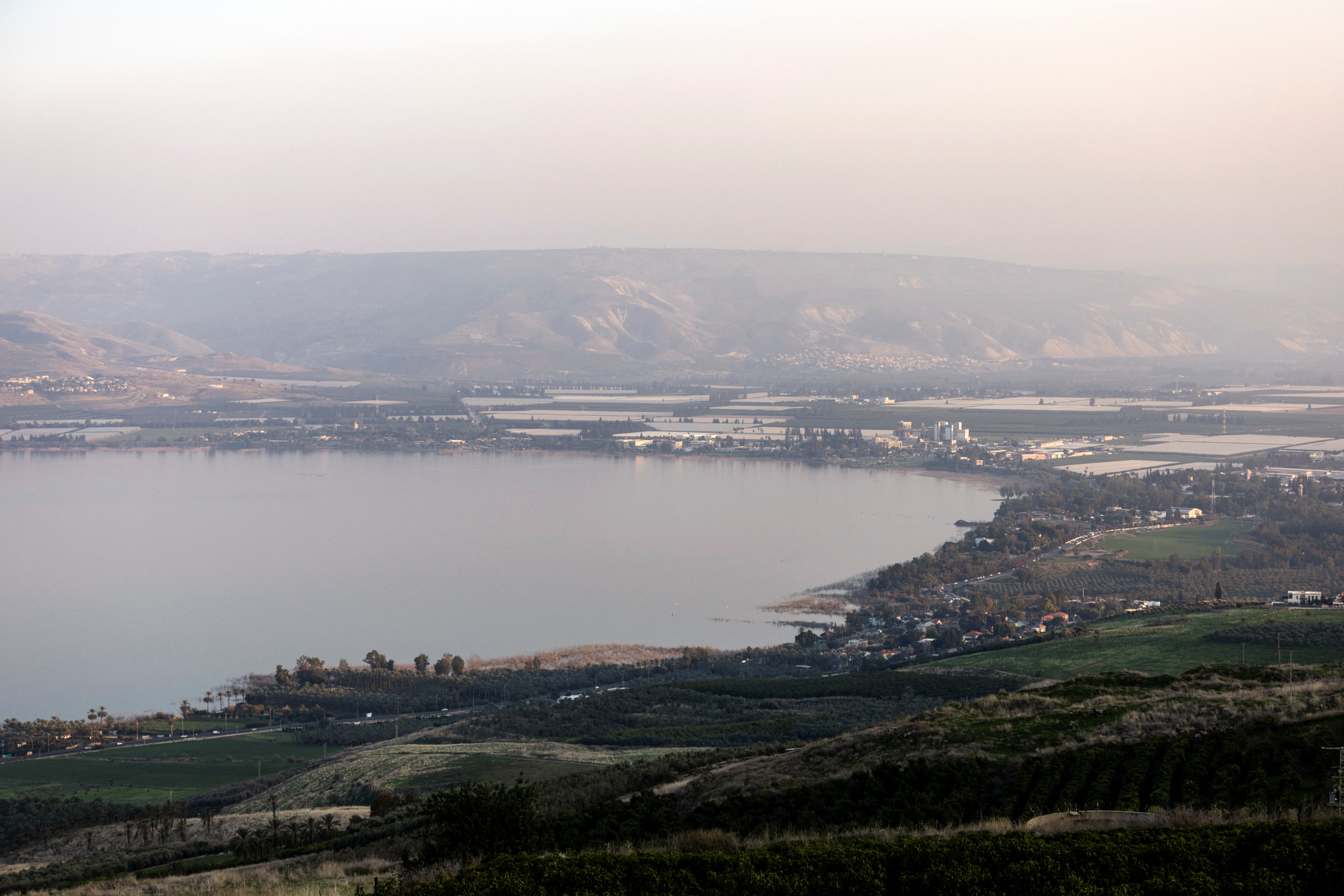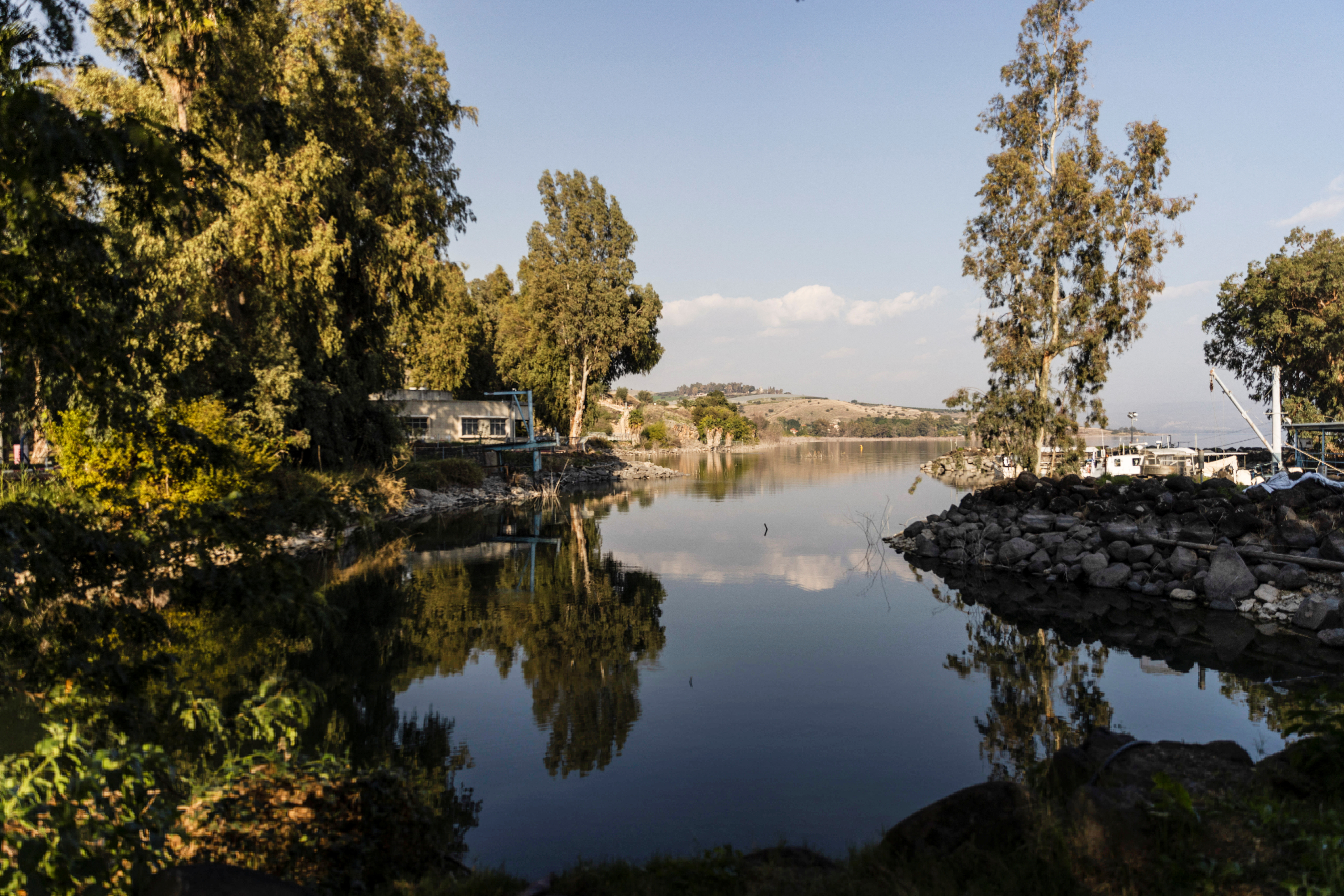Fresh Water in a Parched Landscape
"All the extra water that [the plants] are producing we will be able to bring it with the national water carrier system up north and into the Sea of Galilee.""With the environment of climate changes, you don't know what to expect next year and the year afterward.""We are no longer depending on rain basically for water supply."Yoav Barkay, manager, Mekorot, state-owned national water carrier, Tiberias, Israel
 |
When Jordan and Israel signed their peace treaty in 1994 as neighbours previously at war, one of the major issues that became part of the treaty was Israel's agreeing to provide Jordan with potable water in a region of the world perpetually suffering water shortages. Ever since, the two countries have participated in the pact that has Jordan dependent on Israel for the supply of 50 million cubic meters of potable water annually; an amount doubled by agreement in 2021.
Israel's main reservoir is the Sea of Galilee, the very place where biblical Jesus Christ was held to have walked upon water, making the site a religious tourist draw with hotels around the perimeter of the lake that feeds the Jordan River flowing south to the Dead Sea. The lake level responds to protracted droughts with receding shorelines as the water table diminishes, causing no little amount of anxiety. Heat waves and heavy rain events change the lake's water level dramatically.
Which led Israel to build a chain of desalination plants along its Mediterranean coastline, resulting in the country being able to boast a surplus of water in an infamously arid region of Earth. Water gushes into a dry river bed, racing to the shore of the Sea of Galilee when the floodgates are opened in northern Israel. An area lost to droughts and a growing population's needs has been totally altered.
 |
| A general view shows the Sea of Galilee with Jordan in the background, in northern Israel, January 23, 2023. REUTERS/Ronen Zvulun |
Desalinated water, fresh and high-quality, comes from the Mediterranean Sea to be transported across the country to await the order to replenish the lake when shrinkage occurs. A life-sustaining refill system enabling increased water exports to Jordan. The lake's level can be raised by half a meter annually with the use of this system.
Another agreement between the two countries saw Jordan agree to partner in a project where Jordan would build 600 megawatts of solar generating capacity for export to Israel in exchange for the additional water supply. A pipeline to redouble the amount to reach Jordan is under construction. Some 200 million cubic meters of water-- an amount equal to what the five largest Israel cities combined consume, is set to be supplied to Jordan.
 |
| A bay at the Sea of Galilee can be seen in northern Israel, January 23, 2023. REUTERS/Ronen Zvulun |
Labels: Desalination, Israel, Jordan, Mediterranean Coast, Peace Agreement, Sea of Galilee

0 Comments:
Post a Comment
<< Home